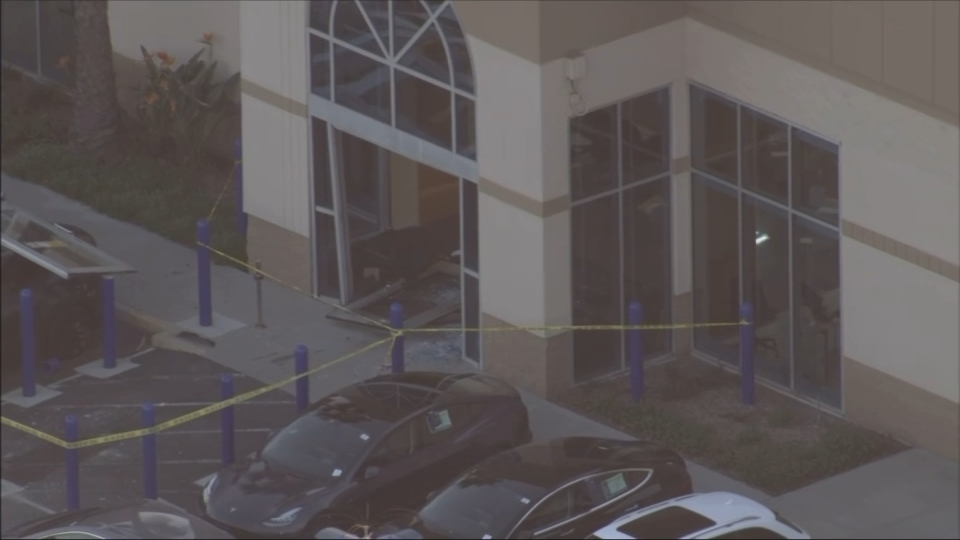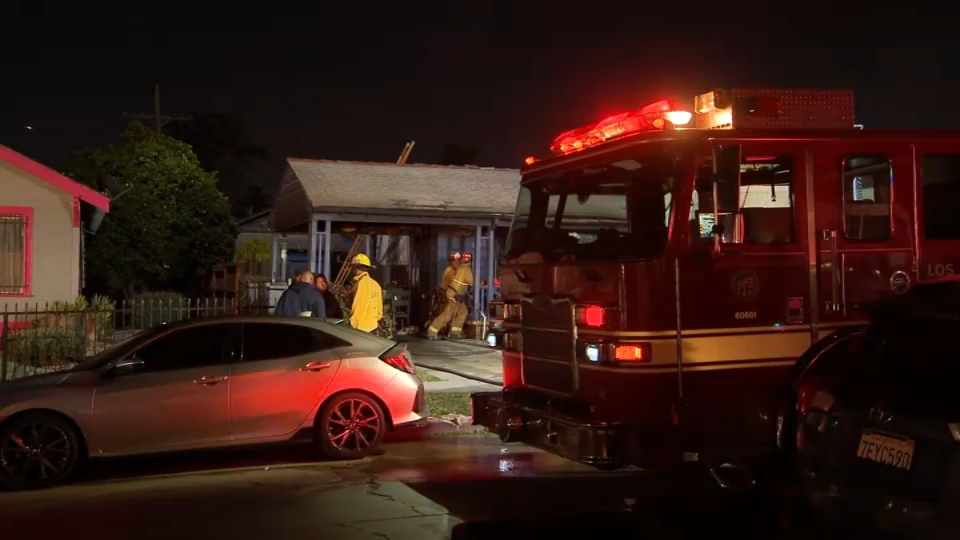A day after NBC4 revealed that LAUSD schools were being used for racy shoots, district superintendent Ramon Cortines temporarily suspended filming on all campuses. Jenna Susko reports for the NBC4 News at 6 p.m. on Oct. 8, 2015.
This is the second of two stories on the impact of Hollywood filming on Los Angeles public schools. The first story is available here.
UPDATE: LAUSD Superintendent Ramon Cortines Thursday suspended all commercial filming at LAUSD schools pending an examination of the policies, a day after the first part of this story aired.
The Los Angeles Unified School District brings in about $2 million dollars from production companies each year — a few extra bucks the district says helps further student education across the district.
But a six-month NBC4 investigation has uncovered many of the hidden costs of filming at LA schools — from students being late to class to interruptions on campus and even damaged equipment, as reported by the I-Team Wednesday.
Scanning emails, permits and filming payments from production companies covering years of data, NBC4 has learned more about how some schools operate — and additional money some schools are collecting when classes or school programs are interrupted.
The district has made about $10 million from filming permits in the past five years — including a pornographic film shoot at Alexander Hamilton High School in Los Angeles.
Filming permits and district records show producers of the 2012 release "Revenge of the Petites" paid cash to film on Hamilton’s campus on two consecutive Saturdays in October 2011. The crew also filmed a carwash scene that included public nudity in the school’s front parking lot.
News
Top news of the day
A school official told NBC4 they were misled about the adult movie being filmed there, and if they’d known what the film was, they never would have allowed the shoot.
They also said a parent complained about the shoot.
LAUSD spokeswoman Shannon Haber sent NBC4 an email Thursday afternoon regarding the pornographic film.
"The district was made aware at that time that the production company failed to comply with terms of the filming agreement," she said. "We immediately notified the production company that it was banned from ever using district facilities again. We also demanded that the company remove any and all images depicting the school or its students from the film."
Records show Birmingham Community Charter High School in Van Nuys is the district's top earner, with production companies having paid nearly $1 million to film there over the last five years.
But you might not know it from the school’s chief executive, Bill Parks.
"We are not making a lot of money," he said about filming revenue, at a recent school meeting NBC4 attended.
Those shoots included a music video for singer CharliXCX’s "Break the Rules," which glorifies doing drugs instead of going to school.
"Getting high and getting wrecked, I don’t want to go to school," the song’s lyrics read.
In an interview with 89.3 KPCC Southern California Public Radio, an administrator at Birmingham said filming revenue "helps with a lot of extra things like computer labs, band uniforms or our athletic teams" in April 2014.
But when NBC4 requested expenditures, Parks said expenses are not coded or tracked because it goes into their general fund.
"Some years are high, some years are low," Parks said in the school meeting. "I think right now we are a little above the break-even stage."
How is that possible? When NBC4 asked for an interview, Parks refused.
At University High School in West Los Angeles, production companies pay around $100,000 a year to film and park production vehicles.
And even though film companies "must not disrupt any school instructional program," according to the filming policy given to companies requesting to film at LAUSD, NBC4 found school officials willing to make exceptions in exchange for additional donations.
According to University’s filming guidelines, donation amounts range from $500 to $3,000 per day, "depending on the size and scope of the film production and the inconvenience it causes."
After a teacher complained about disruptions, the school’s administrator replied, "the company issued a check to compensate the school for any imposition they may have caused."
Records show the bell schedule has been delayed, classes have been moved and sports practices canceled.
According to the emails, one teacher was told, "We will need you to find a place to relocate your students: I’m thinking the cafeteria."
"It almost provides an incentive to film the most disruptive activity possible," Jon Coupal of the Howard Jarvis Taxpayers Association said.
"This is not appropriate activity," he said.
There have been interruptions like explosions, supplies missing from classrooms and damaged equipment.
Teachers have complained there’s nowhere to park when film crews are on site, and one even received a parking ticket.
As for students? They told NBC4 they’re sometimes late to class.
"I remember times when a one-minute walk might turn into a seven-minute walk," University senior Alissa Nardo said.
Parents aren’t happy either.
"They’re just blocking everything, and it’s a real hassle trying to get your kids to school," said Oscar Perez, a parent at Le Conte Middle School.
Superintendent Ramon Cortines refused to interview with NBC4 about filming on campus, issuing a statement saying in part: "School principals are responsible for notifying parents and staff about planned filming activity."
Of 50 schools NBC4 contacted, only six indicated they had a policy to notify parents.
"As a parent, I would like to be notified," said Marshall High School parent Claudia Chacon.
The potential problems go all the way up the chain to FilmLA, which, under its contract with LAUSD, arranges permits for filming.
In March, FilmLA told the school district about a music video production that wanted to film at Marshall High School.
"The song and lyrics are PG," the note said.
But the song, "I’m Gonna Show You Crazy" from singer Bebe Rexha, is loaded with profane language.
Then there’s a film production described as "a PG family movie."
Turns out, the film was 2013’s Afternoon Delight, a movie about a stripper. That film is rated R.
Records do not indicate LAUSD made any change in policy to keep it from happening again.
FilmLA declined an interview with NBC4.
"[Schools] never say what the movie is about," said parent Demetrius Scott. "They never tell you what the movie is."
From sexually charged scenes to hundreds of crew members on campus, while the bright lights may be on, parents are often in the dark.
"It just seems contrary to the notion of good education in the State of California," Coupal said.
FULL STATEMENT FROM LAUSD SUPERINTENDENT RAMON CORTINES:
The Los Angeles Unified School District is located in what is known as the "Entertainment Capital of the World," and the opportunity to use our campuses as filming locations is a win-win for both the entertainment industry and the District.
Schools provide ready-made sets for production companies, in locations that are close to studios. Filming fees charged by the District directly benefit our schools.
Over the last five years, the District has received nearly $10 million in filming revenue, which has enabled our schools to fund programs and much-needed resources to improve the educational experience of their students. The District has strict policies to ensure money is spent appropriately.
To access the entertainment industry, the District has a contract with the nonprofit FilmL.A., which oversees and coordinates permits and filming activities.
When filming at our schools, production crews must adhere to District policies, as well as state and local laws and regulations. FilmL.A. works with District staff to ensure that the filming activity is appropriate, and determines whether additional safety precautions or personnel are needed. School principals are responsible for notifying parents and staff about planned filming activity.
Our first priority is to educate our students and to provide a safe and conducive learning environment. We are pleased with the partnership that the District has built and sustained with the filming industry, and the respect they have shown to our schools.
UPDATED STATEMENT (Oct. 8, 2015)
"I recently asked the District’s Inspector General to examine filming activities at our schools, and that review is under way. I have also asked staff to review existing practices and, if necessary, to update the District’s procedures. As such, I have decided to temporarily suspend all commercial filming at our schools.
It is important that we ensure teaching and learning are not disrupted, and that all filming activity is appropriate for our schools. As an organization responsible for educating students, it is essential that we hold ourselves and our schools to a high standard."



